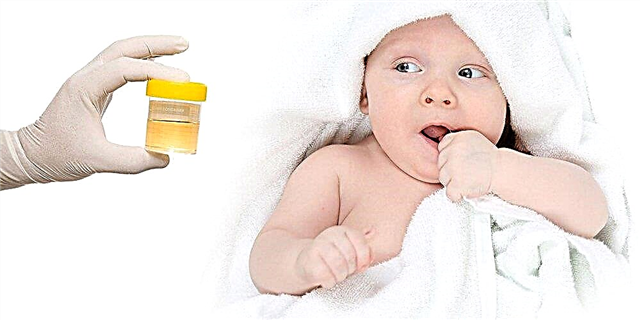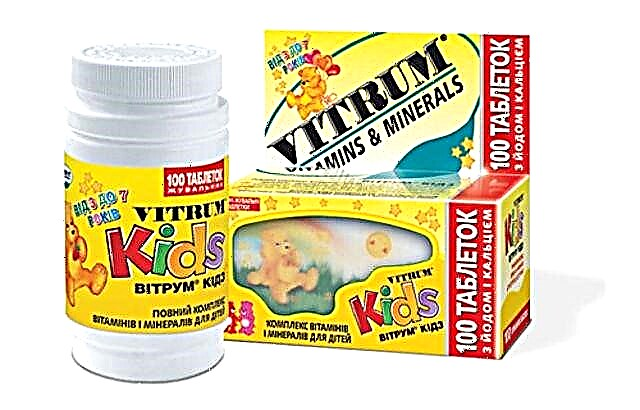
The waiting period for the baby is responsible and important for a woman. During this time, the fertilized egg becomes a mature fetus that can survive outside the mother's body. Unfortunately, this process can be interfered with by some external factor, for example, a viral infection.
Infectious diseases related to TORCH are especially dangerous for the development of the baby. They can provoke malformations, malnutrition, developmental delay, and intrauterine infection. To combat such diseases, drugs based on interferon are often used, for example, "Viferon". One of the most popular forms of this medication is rectal suppositories.
Features of the drug
"Viferon" in the form of candles has a bullet-like shape, yellowish-white color, a diameter of up to 1 cm, a homogeneous structure. This drug is sold in contour packs of 5-10 suppositories. It must be kept at a low temperature (always in the refrigerator) and has a shelf life of 2 years.
The main active ingredient of suppositories is called alpha 2B interferon. This is a synthetically created compound, therefore it is also called recombinant or genetically engineered interferon. Its dosage in 1 suppository can range from 150 thousand to 3 million IU.
Additionally, the composition of the product includes cocoa butter, sodium ascorbate, alpha-tocopherol acetate, polysorbate 80, ascorbic acid, disodium edetate and confectionery fat. These components make the medicine easier to use and give it a firmness. The medication is dispensed without a prescription, and the average price of one package with 10 candles in a dosage of 500,000 IU is 350-400 rubles.

How does it work?
The interferon present in candles has antiviral properties and is able to affect human immunity (this effect is called immunomodulatory). After entering the intestines, this substance begins to be actively absorbed, and then acts on the activity of immune cells, which provide protection for the body against microbes and various viruses.
The presence of alpha-tocopherol and ascorbic acid, known antioxidants, enhances the effectiveness of interferon, and thanks to cocoa butter, suppositories are easy to inject and dissolve rather quickly.
Using "Viferon":
- stimulates the synthesis of antibodies;
- suppresses the multiplication of viruses;
- promotes the production of its own interferon;
- reduces the activity of inflammation;
- strengthens cell membranes;
- enhances regeneration;
- helps to recover faster from viral and bacterial infections;
- allows you to reduce the dosage of antibiotics and hormones.

Is it prescribed for pregnant women?
In the 1st trimester, the drug in the form of suppositories is not used. In the 2nd trimester, starting from the 14th week of gestation, "Viferon" is used without fear. Suppositories are prescribed for acute respiratory infections caused by viruses, including situations where the disease is complicated by a bacterial infection. The drug is in demand when:
- flu;
- herpes infection;
- enterovirus infection;
- mycoplasmosis;
- viral hepatitis;
- human papillomavirus infection;
- relapses of candidiasis;
- chlamydia;
- cytomegalovirus infection;
- ureaplasmosis.
In the 3rd trimester, candles are also used practically without restrictions. They can be used both for detecting a viral infection and for its prevention.
Besides, "Viferon" can be included in the complex of treatment of various pathologies provoked by harmful microbes and fungi. The use of suppositories is possible both in the last weeks of gestation and during breastfeeding.

Studies have shown that treatment with "Viferon" while waiting for a child:
- affects a large list of viruses without forming their resistance;
- prevents the multiplication of viral particles, protecting the fetus from intrauterine infection;
- reduces the risk of developing complications caused by a viral infection during pregnancy;
- reduces the percentage of pathological conditions in pregnant women, including polyhydramnios and abortion;
- lowers the antigenic load on the body of both the woman herself and the unborn baby;
- reduces the risk of intrauterine growth retardation, asphyxia, central nervous system damage and other problems in a child that provoke urogenital infections of the TORCH group.
Contraindications
"Viferon" is not prescribed to expectant mothers, not only in the early stages, but also with increased sensitivity to any component of the suppositories. There are no other contraindications for such a medication.

How to apply?
According to the instructions, the medicine is used only rectally, that is, it is permissible to insert suppositories only into the rectum. The doctor selects the treatment regimen, taking into account both the symptomatology and the gestational age, so it is better to check it with your gynecologist.
For example, with ARVI, the drug is often prescribed in a 5-day course, one suppository twice a day (every 12 hours) at a dosage of 500,000 IU. If the disease becomes more complicated, therapy continues until complete recovery. In viral hepatitis, the daily dosage is determined by age and body surface area. Treatment regimens for such diseases are individual.
In case of infections and inflammatory diseases of the genitourinary organs, caused by chlamydia, candida, cytomegalovirus, Trichomonas and other pathogens, the expectant mother is prescribed a two-fold administration of suppositories with a dosage of 500,000 IU for 10 days. Further, the drug is used in the same dose (only 1,000,000 IU per day) three times with an interval of 3 days, that is, in 9 days a woman must inject 6 suppositories of 500 thousand IU each.
Thereafter, the dosage is reduced to 150,000 IU at a time. In this case, candles are used in 5-day courses with an interval of 12 hours (twice a day), and such courses are repeated every 4 weeks until the birth itself, for example, on the 20th, 24th, 28th week, and so on.
If required, at the end of pregnancy (from the 38th week), the dosage is again increased to 500,000 IU per dose. Suppositories with this content of interferon are used twice a day for 10 days. The same scheme is offered for herpes.


Side effects
In some expectant mothers, "Viferon" can provoke itching, skin rashes and other allergic reactions. When they appear, you need to cancel the drug. As a rule, negative symptoms disappear 1-3 days after stopping the use of suppositories.
Reviews
There are many positive reviews from both patients and doctors about the use of "Viferon" in candles while waiting for a child for colds, herpes, flu, hepatitis and other diseases. The advantages of the drug are called a wide range of effects on various infectious agents, no additional load on the digestive tract and liver, safety for the fetus, ease of use, the ability to combine with any other drugsprescribed for inflammatory diseases and infections.
The disadvantages of candles include the need for storage in the refrigerator and a long course of use, which is why many women call "Viferon" expensive. In addition, although rare, such suppositories still sometimes cause allergy symptoms, which forces them to interrupt treatment and look for a replacement. There are also reviews in which the medication is called ineffective or does not indicate any positive effect on it at all.

Analogs
If it is not possible to use "Viferon" in suppositories, the doctor may prescribe other forms of such a medicine - ointment or gel. They are not contraindicated even in the early stages, therefore they can be used in the first trimester. Most often, such funds are in demand when the mucous membrane or skin is damaged by herpes viruses. In addition, the nasal passages are treated with ointment or gel for flu or other respiratory infections.
Another doctor can prescribe such analogs of "Viferon".
- "Genferon Light"... In the composition of such a medicine, in addition to interferon, there is also taurine. Suppositories with a dosage of 125 or 250 thousand IU can be used rectally and vaginally for various viral or bacterial infections. They, like Viferon, are contraindicated in the first trimester, but from the 14th week, expectant mothers are allowed until the very end of pregnancy. There is another form of "Genferon Light" - a nasal spray. It is prescribed for the treatment or prevention of influenza at any time during gestation.
- "Grippferon". The effect of such a drug, represented by drops and a spray, is provided, as in "Viferon", with interferon of the alpha 2B type. The tool is used for influenza and other viral acute respiratory infections, as well as for their prevention. It is safe for pregnant women in both 2-3 and 1 trimester.
- "Kipferon". In addition to recombinant interferon, this suppository medication also contains a complex of immunoglobulins called CIP for short. It enhances the immunomodulatory and antiviral effects of interferon. The medication is used vaginally or rectally for respiratory and urogenital infections in the second and third trimesters of pregnancy (suppositories are contraindicated in the 1st trimester).
- "Oxolinic ointment". Such a remedy is used with caution while waiting for the child, since studies of the effect of the drug on the fetus have not been conducted. However, many doctors consider the effect of "Oxolin" mainly local, therefore, it is often prescribed to expectant mothers. The drug with a concentration of 0.25% is used for viral rhinitis and for the prevention of ARVI, lubricating the mucous membrane of the nasal passages.
In addition, the conjunctiva can be treated with such an ointment if a woman has a viral eye disease. A remedy with 3% oxolin is used for warts, condylomas, herpes, lichen and other skin lesions.


How to use Viferon candles during pregnancy, see the next video.



